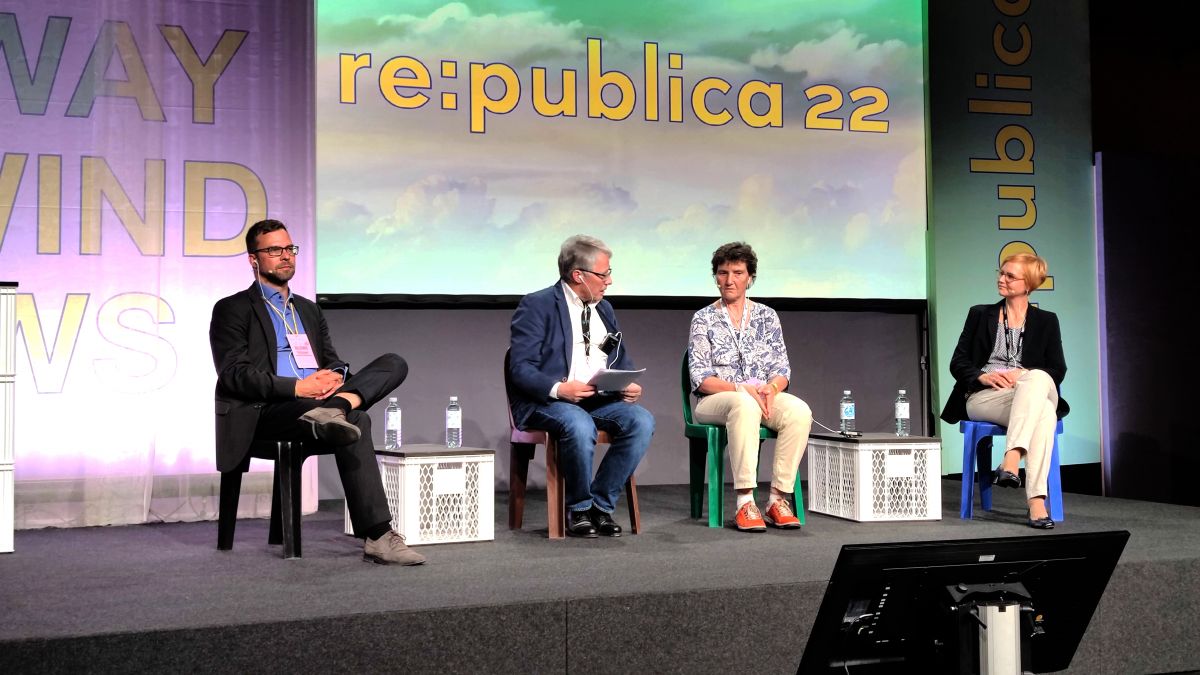The "agricultural systems of the future" at re:publica
14.06.2022
The agricultural systems of the future were part of the thematic contribution "Loo:topia" to the sanitation and nutrient turnaround. In the panel "Nutrient Cycle - The Food Loop" on Thursday evening, the cycle models of the Berliner Wasserbetriebe and the consortium SUSKULT of the "Agricultural Systems of the Future" were presented.
Dr. Sandra Schwindenhammer (University of Giessen) was present as deputy coordinator of the SUSKULT research project (pictured right). SUSKULT connects urban wastewater treatment plants with an agricultural production system, a Newtrient Center, where nutrients are collected and processed centrally. The resulting nutrient liquids are used in hydroponic systems to cultivate plant foods such as sweet potatoes or lettuce, thus closing the loop for fertilizer ingredients such as phosphate or nitrogen.
Along with Regina Gnirß, head of research and development for Berlin Waterworks (second from right) and Prof. Kai Purnhagen (left), head of the Department of Food Law and co-director of the Research Center for German and European Food Law, the benefits and legal challenges of implementing novel approaches to closing nutrient cycles were discussed. Stephan Becker-Sonnenschein, press officer for the zirkulierBAR project, which takes a decentralized approach to closing nutrient loops by using dry toilets for fertilizer production, moderated the panel.
Dr. Schwindenhammer presented that research results show that wastewater treatment is safe, for example, with regard to pharmacological residues, but that legal and societal framework conditions must be considered and adapted in addition to purely technological developments. Prof. Purnhagen called on the actors of the sanitation and nutrient transition to "just do it" in terms of legal framework conditions and to be courageous in order to advance a sustainable sanitation and nutrient transition as quickly as possible.
